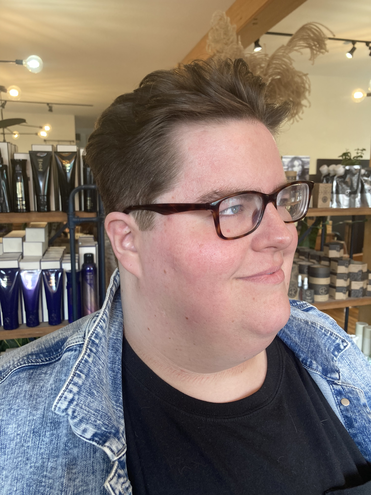About Me

I am a doctoral candidate in philosophy at UMass, Amherst. I research a wide variety of topics from the perspective of an abiding commitment to methodological and metaphysical naturalism.
My dissertation builds theoretical connections between the philosophy of well-being and the sciences of well-being as practiced by psychologists, economists, health scientists, and others. Following Michael Bishop (The Good Life, 2015), I argue that the well-being of individuals and super-individuals (e.g. institutions, organizations, ecosystems) should be construed as extended and complex causal networks rather than as intrinsic properties. In support of this view, I examine the methods and assumptions of both traditional philosophical theories of well-being and the many fields of well-being science, which seem to be in insoluble tension both within themselves and with each other.
Drawing on developments in naturalistic philosophy, I outline in detail an alternative method for philosophical well-being theory that avoids those tensions. Application of this method to well-being science reveals that well-being scientists generally treat well-being as a causal network and aim to measure causal relations between factors that make for well-being. I go on to refine and expand this view in light of new developments in well-being science since the publication of Bishop's book. The second part of my dissertation applies this view to debates about childhood well-being, the use of culturally-laden assumptions in well-being science, the relation between well-being theory and policy, and the semantics of well-being terms. My plans for future research include developing a causal network theory of ill-being, that which makes lives bad for those living them, as well as investigating the potential for a causal network theory of health. I also hope to apply causal network theories to debates about construct validity and measurement in psychology and well-being science.
I also conduct research in naturalistic epistemology, and think a lot about feminism, philosophy of gender, and philosophy of physics.
When I'm not working on philosophy, or labor organizing, you can find me winning at trivia, playing the guitar and other instruments, watching Star Trek, and listening to The Boss.
My dissertation builds theoretical connections between the philosophy of well-being and the sciences of well-being as practiced by psychologists, economists, health scientists, and others. Following Michael Bishop (The Good Life, 2015), I argue that the well-being of individuals and super-individuals (e.g. institutions, organizations, ecosystems) should be construed as extended and complex causal networks rather than as intrinsic properties. In support of this view, I examine the methods and assumptions of both traditional philosophical theories of well-being and the many fields of well-being science, which seem to be in insoluble tension both within themselves and with each other.
Drawing on developments in naturalistic philosophy, I outline in detail an alternative method for philosophical well-being theory that avoids those tensions. Application of this method to well-being science reveals that well-being scientists generally treat well-being as a causal network and aim to measure causal relations between factors that make for well-being. I go on to refine and expand this view in light of new developments in well-being science since the publication of Bishop's book. The second part of my dissertation applies this view to debates about childhood well-being, the use of culturally-laden assumptions in well-being science, the relation between well-being theory and policy, and the semantics of well-being terms. My plans for future research include developing a causal network theory of ill-being, that which makes lives bad for those living them, as well as investigating the potential for a causal network theory of health. I also hope to apply causal network theories to debates about construct validity and measurement in psychology and well-being science.
I also conduct research in naturalistic epistemology, and think a lot about feminism, philosophy of gender, and philosophy of physics.
When I'm not working on philosophy, or labor organizing, you can find me winning at trivia, playing the guitar and other instruments, watching Star Trek, and listening to The Boss.